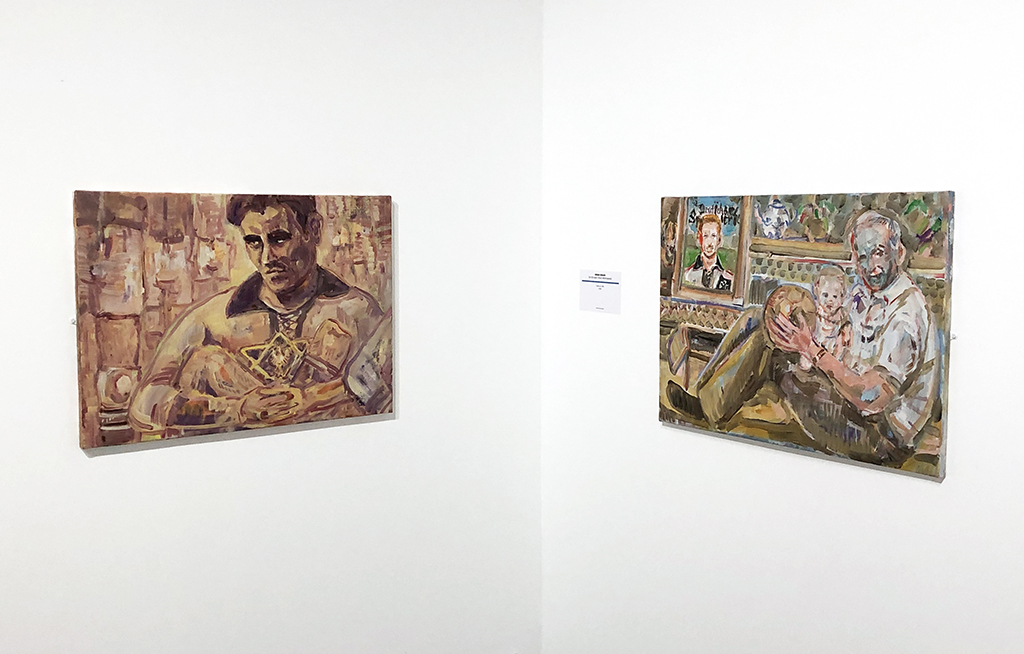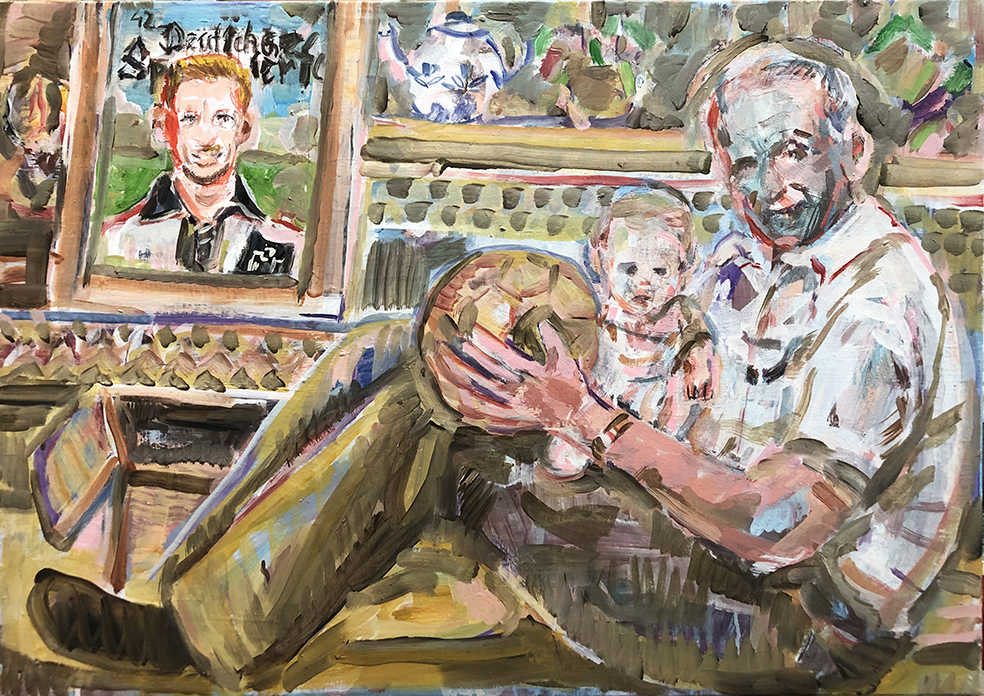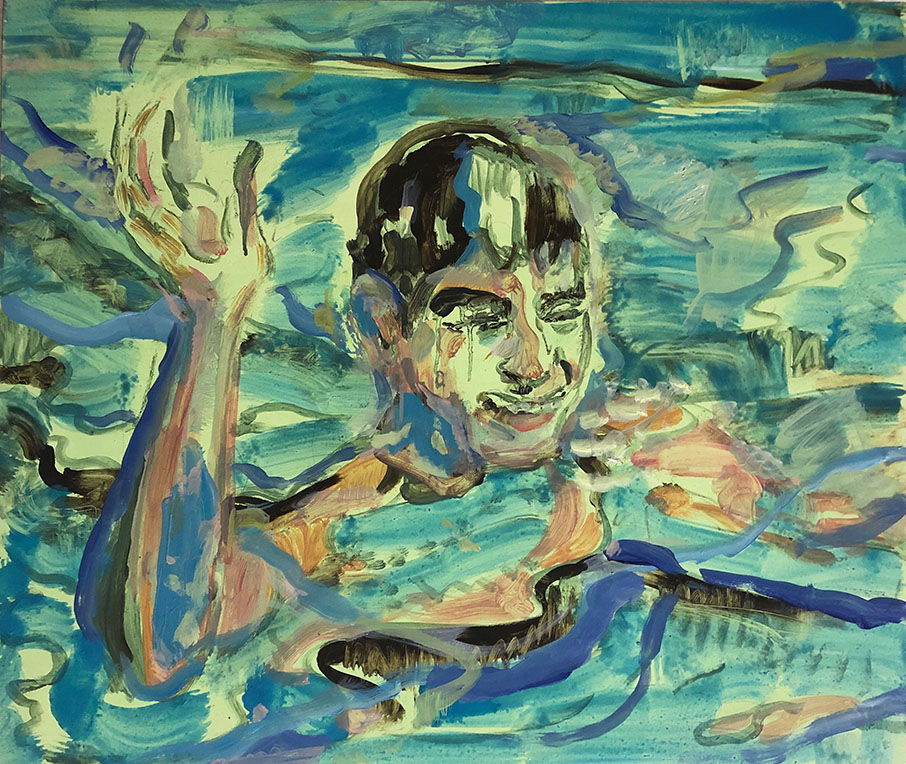(In)Famous

In these two paintings, I look at sport through the lens of two biographies intertwined with history, of two footballers whose respective personal and political paths diverge.

Born in 1900 in Krakow into a family of Jewish shoemakers, Józef Klotz was one of the first stars of Polish football. In 1922, four years after Polish independence, he had an ‘eagle on his shirt’ when he scored the very first goal in the history of Polish football while playing for the national team in an international match against Sweden.
The fact that this founding myth involved a Polish Jew is a ‘circumstance’ that has been erased from the collective consciousness of anti-Semitic and xenophobic fans past and present.
Klotz played for Jutrzenka Krakow and Maccabi Warszawa before being murdered by the Nazis in the Warsaw ghetto in 1941.

As for ‘Ezi’ (Ernst Otto Wilimowski), he was born in Katowice, the capital of Polish Silesia, into a German minority family, but never knew his father, who died on the Eastern Front during the First World War, and took the name Wilimowski from his Polish stepfather.
In 1934, when he played for the national team, Wilimowski went down in world football history as the player who scored the most goals in a single match, on occasion with Brazil.
A Silesian, he redefined himself as a German during the Second World War and signed the Volkslist. He then played for the Third Reich, while his mother, accused of having a love affair with a Russian Jew, was sent to Auschwitz.
After the war, he played for a long time in Germany under the pseudonym Ezi. I was inspired by a photo of him at an old age with his grandson, a ball in his arms.

Born into a Jewish family in Algeria in 1915, Alfred Nakache was the youngest of ten brothers and sisters. To overcome his phobia of water, he decided to become a swimmer and ended up winning several French championships.
At the infamous 1936 Berlin Olympics, he came 4th in the freestyle competition. But it was during WWII that his Jewish status was denounced, particularly by the collaborationist press. Stripped of his French nationality, Nakache was arrested by the Gestapo and deported with his wife and daughter to Auschwitz, from where the latter two never returned.
Back in France, he returned to sport and took part in the 1948 Summer Games in London. Several swimming pools in France and abroad bear Alfred Nakache’s name.
